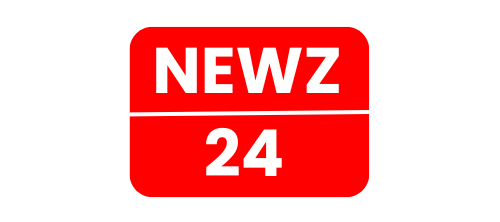As we move into 2025, many Americans are eagerly awaiting news about a possible fourth round of federal stimulus payments. While the details of a nationwide fourth stimulus check remain uncertain, residents of Colorado may be eligible for a significant state-level rebate program that could provide financial relief.
The Colorado Department of Revenue is offering a rebate of up to $1,112 through the Property Tax, Rent, and Heat (PTC) Rebate program. This state-funded initiative is designed to assist low-income individuals, seniors, and those with disabilities with the rising costs of living, particularly during the winter months when heating bills can be a significant financial burden.
Eligibility Criteria for the $1,112 Colorado Rebate
To qualify for the $1,112 Colorado rebate, applicants must meet the following criteria:
- Residency: You must be a full-year resident of Colorado in 2023.
- Age or Disability: You must be at least 65 years old, a surviving spouse aged 58 or older, or have a disability, regardless of age.
- Income Limit: Your total income cannot exceed $18,026 if filing alone or $24,345 for married couples filing jointly.
- Residency Duration: You must have lived in Colorado from January 1 to December 31, 2023.
- Housing or Heating Costs: You must have incurred property tax, rent, or heating costs during the eligible period.
- Dependency Status: You cannot have been claimed as a dependent on someone else’s federal tax return.
The amount of the rebate is determined by your annual income and the specific living costs you have incurred. The Colorado Department of Revenue has allocated $7 million to assist eligible residents with this program.
Application Process and Payment Schedule
To apply for the $1,112 Colorado rebate, you will need to fill out Form 104 PTC, along with the “Affidavit – Restrictions on Public Benefits.” These forms can be found online at the Colorado Department of Revenue’s website (www.taxcolorado.com) or obtained in person at various locations across the state.
If your application is submitted and approved by December 10, 2024, you can expect to receive your payment on January 5, 2025. This timeline is based on the typical processing and distribution schedule for the PTC Rebate program.
Checking the Status of Your Application
To check the status of your PTC Rebate application, you can visit the Revenue Online portal on the Colorado Department of Revenue’s website. In the “Where’s My Refund?” section, select “Colorado Property Tax, Rent and Heat Rebate (PTC)” and input your Social Security number, along with either the PTC Rebate amount or your Letter ID number.
The system will only display the status of your latest rebate installment, not the total rebate amount. If you have any questions or concerns, you can also call the Colorado Department of Revenue’s customer service at (303) 238-7378 during business hours.
It’s important to ensure that the address on your PTC application matches the address on your driver’s license or Colorado ID to prevent any delays in processing. If you don’t have a Social Security number or ITIN, you can apply for an Alternate Identification Number with your rebate application.
Significance of the $1,112 Colorado Rebate
The $1,112 Colorado rebate program comes at a crucial time, as many Americans continue to grapple with the economic fallout of the COVID-19 pandemic. While the broader economic landscape has improved, the impacts of high inflation, rising living costs, and lingering job market challenges have left many households struggling to make ends meet.
The rebate program is particularly beneficial for low-income individuals, seniors, and those with disabilities, as these groups are often the most vulnerable to the financial pressures of rising prices and utility costs. The additional $1,112 can provide much-needed relief and help cover essential expenses, such as property taxes, rent, and heating bills.
Furthermore, the fact that the program does not require a Social Security number for eligibility opens up the opportunity for a wider range of residents, including those who may not have traditional forms of identification, to access this financial assistance.
Comparing the Colorado Rebate to a Potential Fourth Stimulus Check
While the details of a potential fourth federal stimulus check remain uncertain, the Colorado rebate program offers a more immediate and targeted form of financial support for eligible residents. Unlike a nationwide stimulus payment, the Colorado rebate is specifically designed to address the unique challenges faced by low-income individuals, seniors, and those with disabilities within the state.
Additionally, the Colorado rebate is structured as a one-time payment, whereas a fourth stimulus check would likely be a single, nationwide disbursement. This means that the Colorado rebate can be particularly helpful in addressing the specific and ongoing financial needs of the targeted population, especially as they navigate the winter months and the associated increase in heating costs.
The $1,112 Colorado rebate program represents a significant opportunity for eligible residents to access much-needed financial assistance during these challenging economic times. By targeting low-income individuals, seniors, and those with disabilities, the program aims to provide direct support to the communities that are most vulnerable to the impacts of rising costs and economic pressures.
As the details of a potential fourth federal stimulus check remain uncertain, the Colorado rebate serves as a tangible example of how state-level initiatives can step in to support their residents. This program not only offers financial relief but also demonstrates the ongoing commitment of the Colorado government to addressing the needs of its most vulnerable citizens.
For those who meet the eligibility criteria, the $1,112 Colorado rebate can provide a crucial lifeline and help alleviate the burden of essential living expenses. By leveraging this opportunity, residents can take an important step towards greater financial stability and security in the face of the ongoing economic challenges.








